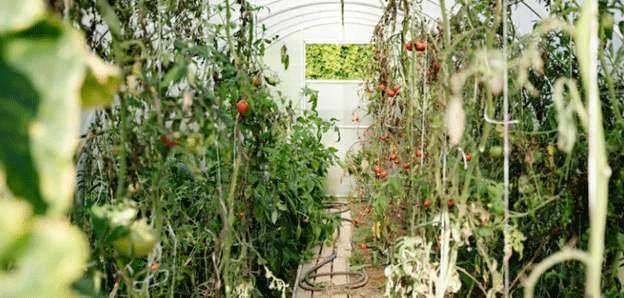Russia has lifted its temporary import restrictions on tomatoes from Kazakhstan, opening up new opportunities for Kazakh producers. This move comes after a comprehensive review by Russian authorities and promises to boost the agricultural trade between the two countries.
Russia Lifts Tomato Import Ban from Kazakhstan: What It Means for Farmers and Agricultural Trade
On January 16, 2025, Russia officially lifted the temporary restrictions on the import of tomatoes from Kazakhstan, marking a significant development in the agricultural trade between the two nations. The decision follows a series of analyses conducted by the Federal Service for Veterinary and Phytosanitary Surveillance (Rosselkhoznadzor) in collaboration with the Russian State Plant Quarantine Center (VNIIKR), ensuring that the tomatoes from Kazakhstan are free from quarantine pests and diseases.
The Impact of the Ban Lift on Kazakhstan’s Agricultural Sector
Kazakhstan, known for its large-scale agricultural production, particularly in fruits and vegetables, has faced challenges in exporting some of its key crops due to phytosanitary restrictions. The temporary ban on tomatoes, which was imposed by Rosselkhoznadzor in the autumn of 2024, included a wide range of plant-based products, such as wheat, lentils, peppers, and melons. This restriction caused significant disruptions in trade, particularly for Kazakhstan’s greenhouse tomato producers who had already been supplying Russia with large volumes of fresh produce.
Now that the restrictions have been lifted, the country’s 36 greenhouse complexes, whose products are recognized as free from quarantine pests, are allowed to export tomatoes to Russia once again. This decision is expected to significantly benefit Kazakh farmers by reinstating access to one of their most important export markets. For Kazakhstan’s agricultural producers, particularly those in the greenhouse sector, the lifting of the ban offers an opportunity to increase their exports to Russia, an important destination for tomatoes.
Russia’s Role in the Regional Agricultural Market
For Russia, lifting the ban on tomatoes will improve the availability of fresh produce in the market, especially during off-seasons when local supply can be limited. Kazakhstan’s proximity and strong agricultural output make it a key supplier of fresh vegetables, and the return of Kazakh tomatoes is expected to help stabilize Russian tomato prices, ensuring a consistent supply for Russian consumers.
This move also underscores the importance of maintaining healthy trade relationships between neighboring countries, especially when agricultural production is a crucial sector for economic growth. As Kazakhstan’s agriculture sector continues to grow and improve its production standards, there are increasing opportunities for the country to expand its role as a supplier of quality produce to Russia and other neighboring regions.
Ongoing Negotiations for Other Agricultural Products
While tomatoes are now cleared for export, Kazakhstan’s agricultural sector is still negotiating the lifting of restrictions on other products, including wheat, lentils, peppers, and sunflower seeds. These products, like tomatoes, are crucial to Kazakhstan’s agricultural export portfolio. The success of the tomato negotiations provides hope for further lifting of restrictions, as Kazakhstan continues to engage in talks with Russian authorities to ensure that its plant products meet the necessary phytosanitary standards for import.
A Positive Step for Agricultural Trade
The lifting of the tomato import ban from Kazakhstan is a significant step for both Kazakhstan’s agricultural sector and Russia’s food supply chain. For Kazakh farmers, especially those in greenhouse tomato production, this decision provides a much-needed boost to their export opportunities. For Russia, it ensures a steady supply of fresh, high-quality tomatoes from a close neighbor, stabilizing prices and availability.
With ongoing negotiations for other agricultural products, the future looks bright for further cooperation between the two countries. Farmers and agricultural professionals across both nations will be closely monitoring these developments, which have the potential to strengthen regional trade and agricultural collaboration even further.










